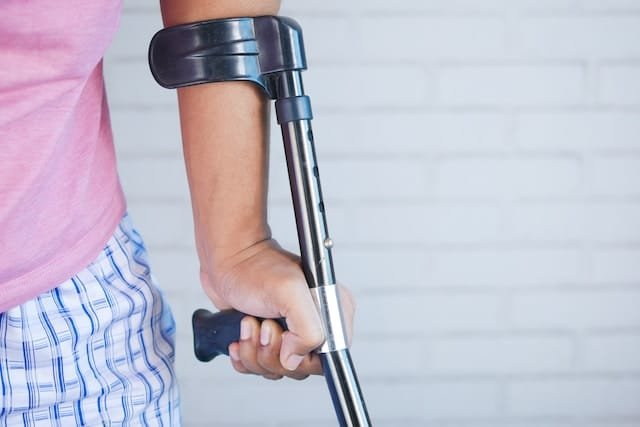In a split second, life can take an unexpected turn. Accidents, whether minor fender-benders or major collisions, can have profound and lasting effects on one’s life. From physical injuries and emotional trauma to financial strain and legal complexities, the aftermath of an accident can be overwhelming. However, it is crucial not to let a bad accident define your future. By taking proactive and actionable steps, you can reclaim control over your life, minimize the impact of the incident, and pave the way for a smoother recovery.
Seek Immediate Medical Attention
The first and foremost action to take after an accident is to prioritize your health and well-being. Regardless of the perceived severity of your injuries, seeking immediate medical attention is crucial. Some injuries, such as whiplash or internal injuries, might not manifest symptoms right away but can lead to significant complications if left untreated. Delaying medical care can not only jeopardize your health but also weaken your insurance claims and legal cases. Ensure you are thoroughly examined by medical professionals, follow their advice, and attend all necessary follow-up appointments. Documenting your injuries and treatments is vital for building a strong case if you need to pursue legal action later.
Understand Your Rights and Consult a Skilled Attorney
Understanding your rights and responsibilities following an accident is essential. Insurance policies, liability issues, and legal procedures can be intricate and confusing. Consulting a skilled personal injury attorney can provide you with invaluable guidance. Experienced personal injury lawyer can assess the specifics of your case, advise you on your legal options, and advocate on your behalf. They can negotiate with insurance companies, gather evidence, and represent you in court if necessary.
Having a knowledgeable attorney by your side can significantly enhance your chances of receiving fair compensation for medical expenses, lost wages, property damage, and emotional distress. Remember, the legal system is designed to protect your rights; a qualified attorney can help you navigate its complexities with confidence.
Focus on Emotional Healing and Rehabilitation
Recovery from an accident extends beyond physical healing; it encompasses emotional well-being too. Coping with the emotional aftermath of a traumatic event is a significant challenge. It’s essential to acknowledge your feelings, seek emotional support, and consider therapy or counseling if needed. Building a strong support network of friends, family, and mental health professionals can provide emotional stability during this difficult time. Additionally, focus on rehabilitation, whether it’s physical therapy for your injuries or counseling to address trauma. Engaging in activities that bring you joy, practicing relaxation techniques, and maintaining a positive outlook can aid in the healing process. Remember, healing is not just about mending the body; it’s about restoring the spirit as well.
Document the Incident: Preserve Crucial Evidence
One of the most crucial steps after an accident is to document the incident thoroughly. This documentation can serve as vital evidence in your insurance claims or legal proceedings. If you are physically able, take photographs of the accident scene, including the vehicles involved, any visible injuries, road conditions, and traffic signals. Collect names and contact information of witnesses, if any, as their statements can bolster your case. Additionally, file a police report detailing the accident. The more comprehensive your documentation, the stronger your case becomes. This evidence can help establish liability and strengthen your position during negotiations with insurance companies or in court.
Stay Cautious with Insurance Companies
While insurance companies are meant to assist you in times of need, it’s crucial to approach communications with them cautiously. Insurance adjusters may seem friendly, but their primary goal is to minimize payouts. Be mindful of what you say and avoid admitting fault or making statements that could be used against you later. Before accepting any settlement offers, consult with your attorney. They can assess the offer’s fairness and negotiate with the insurance company on your behalf. Remember, insurance companies have legal teams working for them, and having your legal representation ensures you have someone fighting for your best interests.
Plan for Long-Term Recovery: Secure Your Future
Recovery from a significant accident might be a lengthy process, requiring ongoing medical treatments, therapy, and financial support. It’s crucial to plan for the long term. Work closely with your healthcare providers to understand the full extent of your injuries and the necessary treatments. Simultaneously, collaborate with your attorney to assess the long-term financial implications. This might include estimating future medical costs, lost earning potential, and other related expenses. Secure your future by exploring options such as structured settlements or trusts that can provide a steady income to cover your medical and living expenses. By planning meticulously, you can ensure that you have the resources to support your recovery journey and maintain your quality of life in the years to come.

Nurture Your Physical and Mental Health
Amidst the legal battles and medical appointments, it’s easy to neglect self-care. However, this aspect is pivotal to your overall recovery. Make self-care a priority in your daily routine. Engage in gentle exercises recommended by your healthcare providers to promote physical healing. Focus on your mental health by practicing mindfulness, meditation, or yoga to alleviate stress and anxiety. Adequate sleep and a balanced diet can significantly impact your energy levels and mood. Additionally, consider joining support groups or connecting with others who have gone through similar experiences. Sharing your challenges and triumphs with people who understand can provide immense emotional relief. Remember, self-care isn’t a luxury but a necessity, enabling you to heal holistically and reclaim your life with renewed strength and resilience. Taking time for self-care is not selfish; it’s a vital investment in your well-being, ensuring you emerge from this ordeal stronger and more empowered than ever before.
Recovering from a serious accident is undeniably challenging, but by following these actionable steps, you can chart a course toward recovery and reclaim control over your life. From prioritizing your health and understanding your legal rights to documenting crucial evidence and embracing self-care, each step is a building block in your journey toward healing and renewal. Remember, you are not alone—reach out for support when needed, be it from healthcare professionals, legal experts, or your support network. By taking these proactive measures, you’re not just addressing the immediate aftermath of the accident; you’re securing a brighter, more resilient future. With determination, patience, and the right support, you can overcome the hurdles, emerge stronger, and embrace life anew, turning a challenging chapter into a testament to your strength and resilience.


